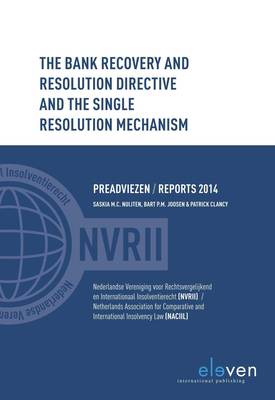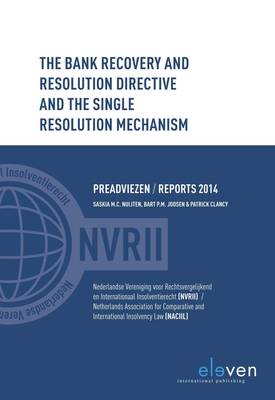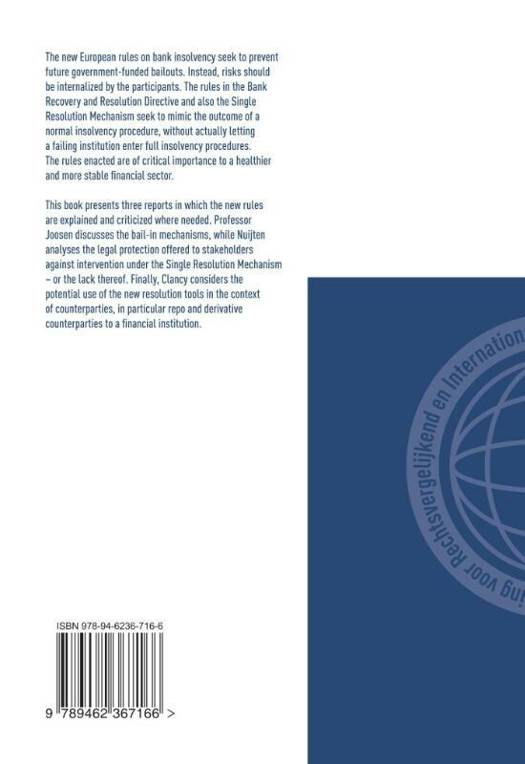
- Afhalen na 1 uur in een winkel met voorraad
- Gratis thuislevering in België vanaf € 30
- Ruim aanbod met 7 miljoen producten
- Afhalen na 1 uur in een winkel met voorraad
- Gratis thuislevering in België vanaf € 30
- Ruim aanbod met 7 miljoen producten
Zoeken


The Bank Recovery and Resolution Directive and the Single Resolution Mechanism
Preadviezen/Reports 2014
Saskia M C Nuijten, Bart P M Joosen, Patrick Clancy
€ 45,95
+ 91 punten
Omschrijving
The new European rules on bank insolvency seek to prevent future government-funded bailouts. Instead, risks should be internalized by the participants. The rules in the Bank Recovery and Resolution Directive, and also the Single Resolution Mechanism, seek to mimic the outcome of a normal insolvency procedures, without actually letting a failing institution enter full insolvency procedures. The rules enacted are of critical importance to a healthier and more stable financial sector. This book presents three reports in which the new rules are explained and criticized where needed. Professor Joossen discusses the bail-in mechanisms, while Saskia M.C. Nuijten analyzes the legal protection offered to stakeholders against intervention under the Single Resolution Mechanism-or the lack thereof. Finally, Patricky Clancy considers the potential use of the new resolution tools in the context of counterparties, in particular repo and derivative counterparties to a financial institution. [Subject: Commercial Law, Comparative Law, Banking Law]
Specificaties
Betrokkenen
- Auteur(s):
- Uitgeverij:
Inhoud
- Aantal bladzijden:
- 92
- Taal:
- Engels
- Reeks:
Eigenschappen
- Productcode (EAN):
- 9789462367166
- Verschijningsdatum:
- 23/03/2017
- Uitvoering:
- Paperback
- Formaat:
- Trade paperback (VS)
- Afmetingen:
- 159 mm x 235 mm
- Gewicht:
- 367 g

Alleen bij Standaard Boekhandel
+ 91 punten op je klantenkaart van Standaard Boekhandel
Beoordelingen
We publiceren alleen reviews die voldoen aan de voorwaarden voor reviews. Bekijk onze voorwaarden voor reviews.












